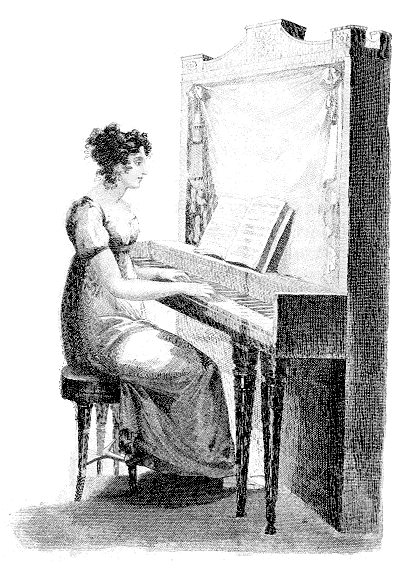PIANO
By D.H. Lawrence
The poem “Piano” was written by D.H. Lawrence. He is listening to a woman playing the piano and becomes nostalgic thinking of memories from his childhood. He is torn between his feelings of the present and his memories of the past. Below is D.H. Lawerence’s “Piano.”
Softly, in the dusk, a woman is singing to me;
Taking me back down the vista of years, till I see
A child sitting under the piano, in the boom of the tingling strings
And pressing the small, poised feet of a mother who smiles as she sings.
In spite of myself, the insidious mastery of song
Betrays me back, till the heart of me weeps to belong
To the old Sunday evenings at home, with winter outside
And hymns in the cosy parlour, the tinkling piano our guide.
So now it is vain for the singer to burst into clamour
With the great black piano appassionato. The glamour
Of childish days is upon me, my manhood is cast
Down in the flood of remembrance, I weep like a child for the past.
In D.H. Lawerence’s Piano, he describes memories from his childhood. He is listening to a woman sing, which has brought him back to a time where he listened to his mother sing to him. This song makes him reminisce about his past. He tries not to think about that but can not help himself. These memories make him wish for his childhood again.
Lawerence seems confused about his place. He also seems to be making a connection with the women singing and his mother. In the last two lines of the poem I feel that Lawerence is expressing that he can not be a child again and must contiue his manhood. Words like “In Spite”, “Betray’s, and “Vain” express the negative feelings Lawerence is enduring.
Poem Taken From:
The Norton Anthology of English Literature. 8th Edition. Vol. 2. New York: Norton, 2006. (p.2275)
Back to the D.H. Lawrence Page
Contributor: Liz Ehmer

